
News for 2021
Pathology Investigators Support Development of the First Long-acting Agent for HIV PrEP
On December 20, 2021, the US FDA approved the first injectable drug for HIV pre-exposure prophylaxis (PrEP) to prevent sexual HIV acquisition. Apretude (CAB-LA, ViiV) is an injectable, long-acting form of cabotegravir, an HIV integrase strand transfer inhibitor. The safety and efficacy of CAB-LA were assessed in two randomized clinical trials conducted by the HIV Prevention Trials Network, HPTN 083 and HPTN 084, which compared CAB-LA injected every 2 months to a once daily oral PrEP regimen (Truvada). HPTN 083 enrolled 4,566 men who have sex with men and transgender women (MSM/TGW) 43 sites in the US, Latin America, Asia, and Africa. HPTN 084 enrolled 3,224 cisgender women at 20 sites in Africa. CAB-LA reduced HIV incidence by 69% in MSM/TGS and by 90% in cisgender women and was well-tolerated in both populations. The HPTN Laboratory Center based in the Department of Pathology at JHU was responsible for overseeing laboratory activities for both trials and for conducting detailed laboratory assessments to evaluate virologic and pharmacologic outcomes in the setting of CAB-LA PrEP. This work was led by Dr. Susan Eshleman, Dr. Mark Marzinke, and Estelle Piwowar Manning. Paul Richardson, Philip Sullivan and Yaw Agyei provided study site support. The trials were also supported by other HPTN Laboratory Center investigators (Craig Hendrix and Deborah Persaud at JHU; Peter Anderson at the Univ. of Colorado) and staff in four laboratories at JHU (HIV Clinical Research Laboratory; HPTN Core Laboratory; Clinical Pharmacology Analytical Laboratory; HIV Reservoir Laboratory) and the Colorado Antiviral Pharmacology Laboratory. Both trials are now transitioning to an open-label extension phase where all participants will be offered CAB-LA PrEP.
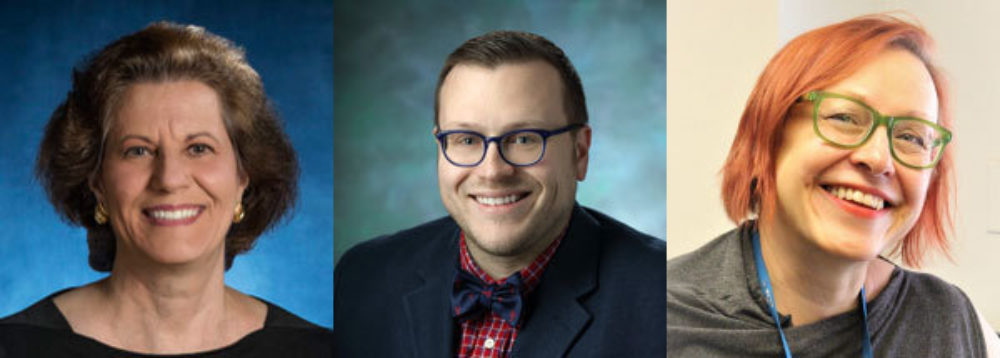
Cover of Cell
It has been said that making the cover of the journal Cell is the scientific equivalent of a musician making the cover of the Rolling Stone. We therefore congratulate Chuan-Hsiang (Bear) Huang and his team for their image on the December 9th issue of Cell (Cell, volume 184, issue 25). The basis of the image is a wonderful paper in the journal, “deciphering cell signaling networks with massively multiplexed biosensor barcoding.” In this paper, Bear and his team describe an exciting novel technique to dynamically image cell responses in mixed cell populations.
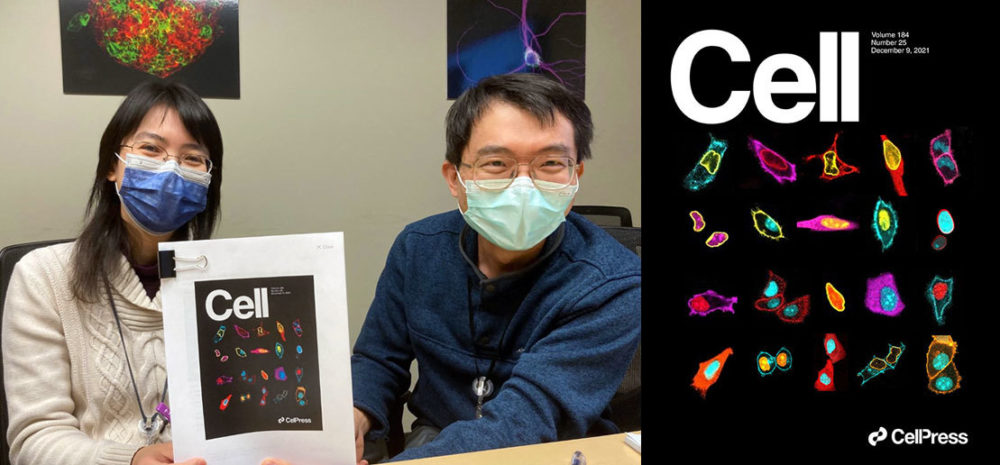
1 Millionth Test for Sars-CoV-2
The Department of Pathology celebrated a special milestone on Thursday November 11th. The Department has performed over 1 million tests for Sars-CoV-2. Kevin Sowers and Al Valentine, and Drs. Paul Rothman, Redonda Miller, and Ralph Hruban, spoke in a ceremony in the Peterson Courtyard. The ceremony was a wonderful reflection of the diverse talents across the Department of Pathology and the village of medical technologists, laboratory technicians, faculty and more who completed each of these tests and have helped facilitate great outcomes for our patients here at Johns Hopkins.
| By The Numbers | |
|---|---|
| COVID RNA/POC Tests | 1 million |
| COVID Genotyping | >10,000 |
| COVID Antibody Tests | 45,000 |
| Interleukin 6 | 5,000 |
| Convalescent Plasma | 688 units/604 patients |
| Coagulation – D-Dimers | >13,000 |
| Phlebotomy Encounters | countless |
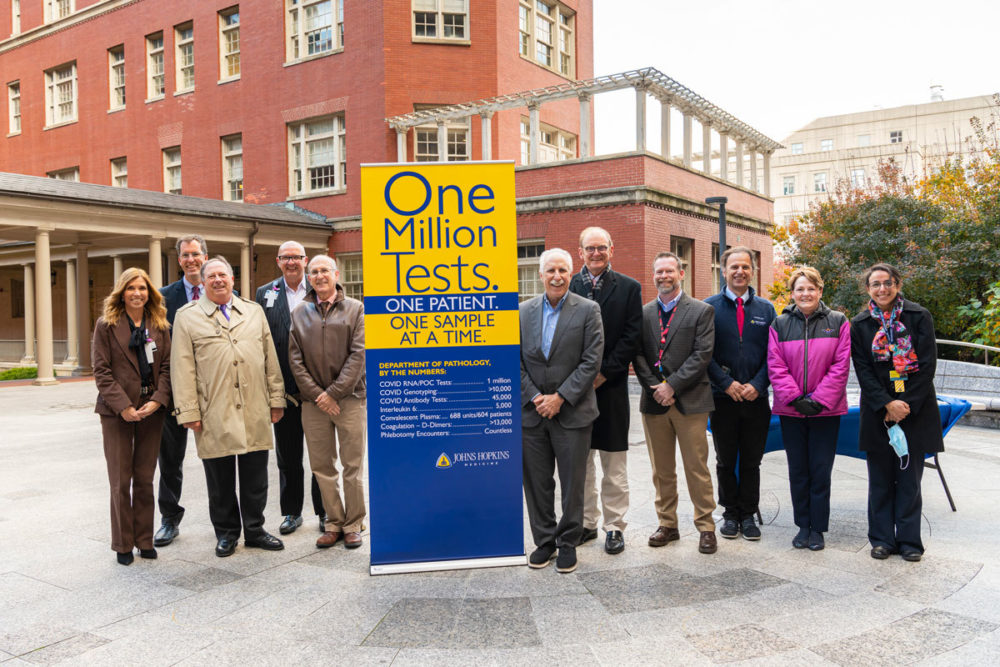

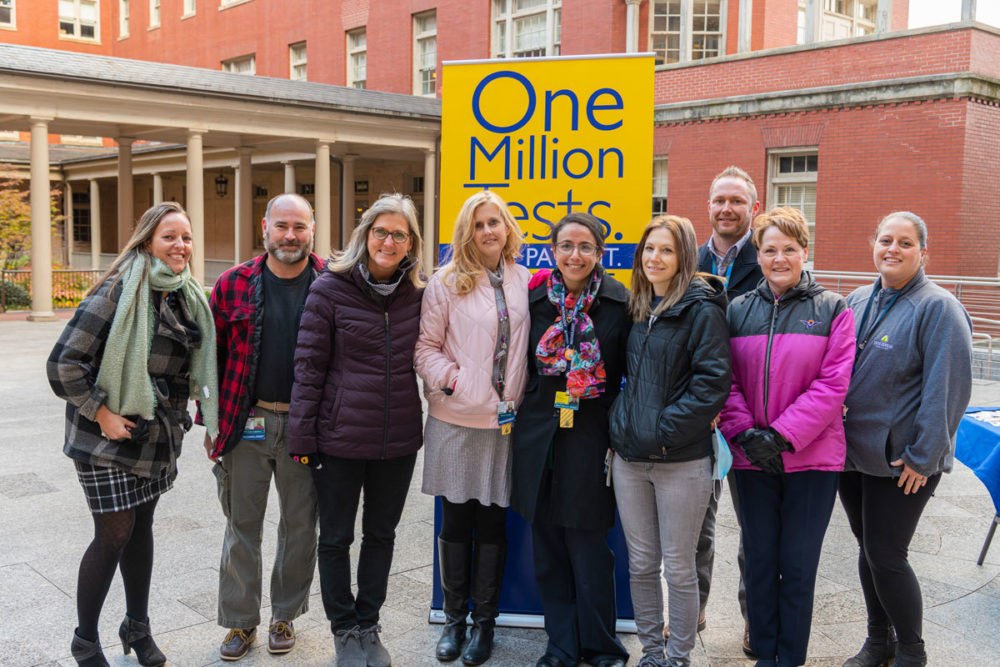
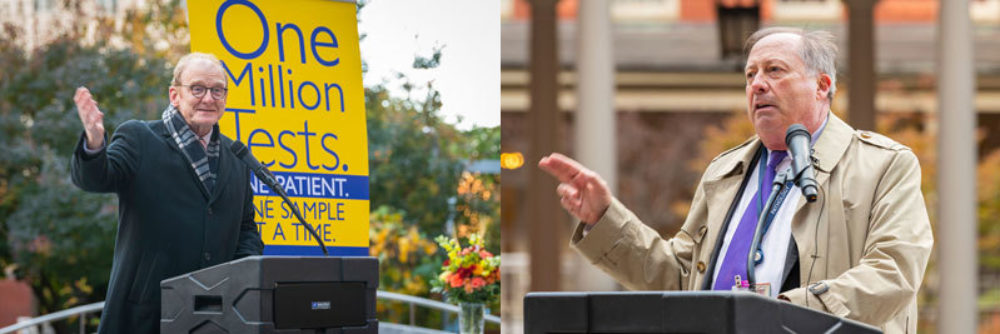
In Memoriam - Daniela Correia Salles, M.D.
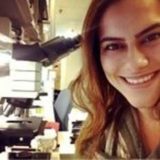
It is with a heavy heart that we share the devastating and unexpected loss of our friend and colleague, Dr. Daniela Correia Salles. Dr. Salles was completing a research postdoctoral fellowship with Tamara Lotan following a clinical Urologic Pathology fellowship mentored by Jonathan Epstein at Johns Hopkins. She was an outstanding pathologist and researcher who led and contributed to a large number of prostate cancer biomarker studies. Always with a smile on her face, she was a vibrant and generous colleague who will be sorely missed. Our thoughts are with Dr. Salles’ family as we mourn her loss.
A memorial service took place at Johns Hopkins on October 25 and can be viewed at this link.
Indigenous Peoples' Day
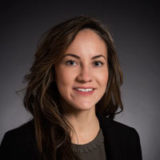
For Indigenous Peoples' Day, the American Society of Clinical Pathology showcased a Q&A session with Dr. Tricia Murdock, an assistant professor in the Division of Gynecologic Pathology and a member of the Tuscarora Nation.
Dr. Thomas Kickler is retiring in October!
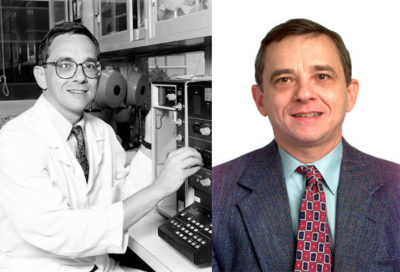
After 42 years in the Department of Pathology, Dr. Thomas Kickler will retire this coming October. He joined Hopkins in July 1980 in the Hospital Blood Bank after having been trained in Internal Medicine (Mayo), Hematology & Transfusion Medicine (University of Rochester) and Clinical Pathology (Hopkins). During his tenure in the blood bank, he established an internationally recognized research program in platelet alloimmunization. His early studies provided the first successful means in selecting compatible platelets for transfusion in alloimmunized patients. He later developed strategies to circumvent alloimmunization and in preventing alloimmunization to platelets, playing a key role in platelet filtration science. He also studied important platelet Alloimmune diseases and mechanisms of platelet immune destruction. These studies led to recognizing the first agreed upon marker of platelet hyper reactivity, a polymorphism of platelet glycoprotein IIIa. He and his fellow, Jean Lamadue MD, PhD were the first to show that cytokines activate platelets, now a recognized determinant in thrombosis and inflammation.
In 1995, Fred Sanfilippo recruited Dr. Kickler to become director of the hematology laboratory. At this time, he was charged with consolidating all the hematology-testing laboratories in Medicine, Pediatrics, Oncology and Anesthesia into one central laboratory, and with creating the Core Laboratory with Dr. Dan Chan. Along with this centralized laboratory, a customer service and quality assurance unit were created to support the testing services in the Core Laboratory. Dr. Kickler also became Director of Phlebotomy. A key component of the Core Lab’s success was Dr. Kickler and Chan’s commitment to state of the art automation and innovative technology, which promoted not only efficiencies but also improved patient care. Despite the lack of initial enthusiasm by microscopists and traditional hematologists, he introduced telehematology, which provides personalized review of blood smears anywhere there is a computer or smart phone, an enhancement to diagnosis and teaching conferences. While directing the creation of the Core Laboratory, he also served as first executive director of the hospital’s blood less medicine program. He was a strong advocate of patients’ rights and their autonomy in decision making that affected their care. For a few years, he was acting Director of Adult Hematology, which gave him the opportunity to mentor many of the current faculty of that division. He was a recognized educator at the medical student, resident and fellow levels, and mentored dozens of academic leaders in hematology and blood banking. His coagulation manual, in its fifth edition, is acclaimed for its clarity and usefulness as a learning tool.
Dr. Kickler’s Hopkins mentors in clinical pathology were Rex B. Conn, Robert C. Rock and Robert E. Miller. From these mentors he learned that the fundamental principle ruling the administration of the laboratory was to place patient quality and safety first. Dr. Kickler has a strong commitment to quality and safety, and served as Physician Advisor. In this position, he developed our program of credentialing and evaluation of pathologists. He was also a charter member of the American Association Blood Bank Inspection and Accreditation Program, and served for many years as their Area Chairman accrediting all east coast hospitals” blood banks.
While he spent much time in teaching physicians, he was devoted to his medical technologists ongoing training and providing them with every opportunity to advance in their careers. This support encouraged many of his laboratory staff to progress in professional schools or in achieving leadership roles in the laboratory or hospital administration.
Dr. Brodsky remarks that Dr. Kickler has been a real gem and an indispensable asset to the Division of Hematology and Johns Hopkins through research, education, clinical care and mentorship. He always provided us with the most up-to-date coagulation assays in a timely manner and as a result made us all better clinicians. His wit and insight into mechanisms of coagulations and transfusion medicine added enormous value to hematology conferences. Dozens of hematology fellows, many now on faculty, learned and were inspired by his wisdom of hematology. I am personally indebted to him for contributions to the division of hematology and his friendship!
Dr. Spivak indicates that Dr. Kickler has been a font of wisdom since he became a member of the Hematology Division. His quiet advice was a welcome feature of our weekly clinical conferences, as was his collegiality and willingness to mentor residents, fellows and junior faculty.
After transitioning to professor emeritus, Dr. Kickler looks forward to being a participant in the Johns Hopkins Academy, and continuing with his own volunteer work in Baltimore and in Franklin PA, where he will maintain his second residence.
The Department of Pathology is grateful to Dr. Kickler for his many invaluable contributions to the Department and especially the success of the Core Lab! We wish Tom all the very best and thank him for his many years of service in Pathology, to his students, fellows, and his dedication to outstanding customer service and safety, and supporting the mission of Johns Hopkins Medicine.
Congratulations Tom!
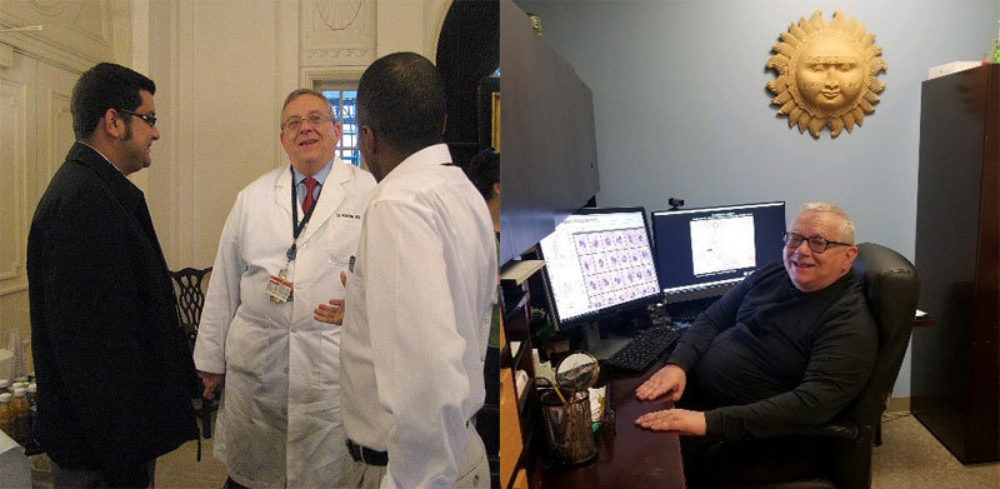
The Leela and Belur S. Bhagavan, M.D. Professorship
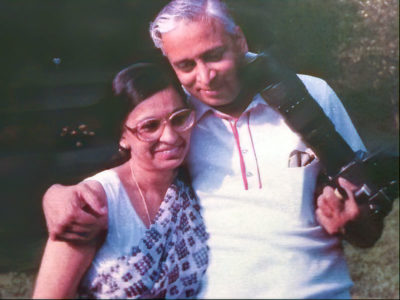
We are pleased to announce the campaign to endow The Leela and Belur S. Bhagavan, M.D. Professorship in pathology. As Chair of Pathology at Sinai Hospital, Belur was an active teacher of our medical students (1985 to 1999). After spending a year in New York at Montefiore Medical Center and the Albert Einstein College of Medicine, Belur returned to Baltimore to join our faculty as an Associate Professor of Pathology. At Hopkins, Belur focused on GI Pathology. Throughout his tenure, Belur was a much admired for his diagnostic skills, his teaching, his wit, and his extraordinary life philosophy. Belur's wife Leela also worked at Sinai, becoming the first Indian ASCP certified histotechnologist in Baltimore. She later forged a successful 30-year career in banking.
"To honor their memory, the Leela and Belur S. Bhagavan, M.D. Professorship in Pathology is being established in the Johns Hopkins Department of Pathology to recognize their ideals-rigorous research in pursuit of truth and the sharing of knowledge for the greater good."
Click here to learn more about how you can support this wonderful tribute to Belur.
Cindy Liu to Receive Presidential Award from GW

Dr. Cindy Liu is one of the recipients of the President's Medal from George Washington University for her extraordinary contributions to the ongoing pandemic response. She will be receiving this award with Dr. Anthony Fauci, the director of the National Institute of Allergy and Infectious Diseases.
Cindy Liu is a former CP resident who worked with our faculty members Drs. Aaron Tobian, Marc Halushka, and Christopher Gocke. She wrote the message below to her mentors:
"
As you know, I was responsible for setting the COVID testing operation at GW. I put my Hopkins training to use... and thank you for the training that I got at Hopkins.
Cindy Liu, M.D., M.P.H., Ph.D.
Congratulations, Cindy!
Pathology Virtual Visiting Elective in Equitable Healthcare
The Department of Pathology is happy to announce the Pathology Virtual Visiting Elective in Equitable Healthcare, offered from 9/13-9/24. The rotation will include a core universal health equity curriculum, as well as pathology-specific content which will discuss health disparities from a pathology perspective. The basics of surgical pathology and laboratory medicine will also be covered. US medical (MD or DO) students graduating in 2022 are eligible to apply, and may obtain additional information at Visiting Medical Student Information website.
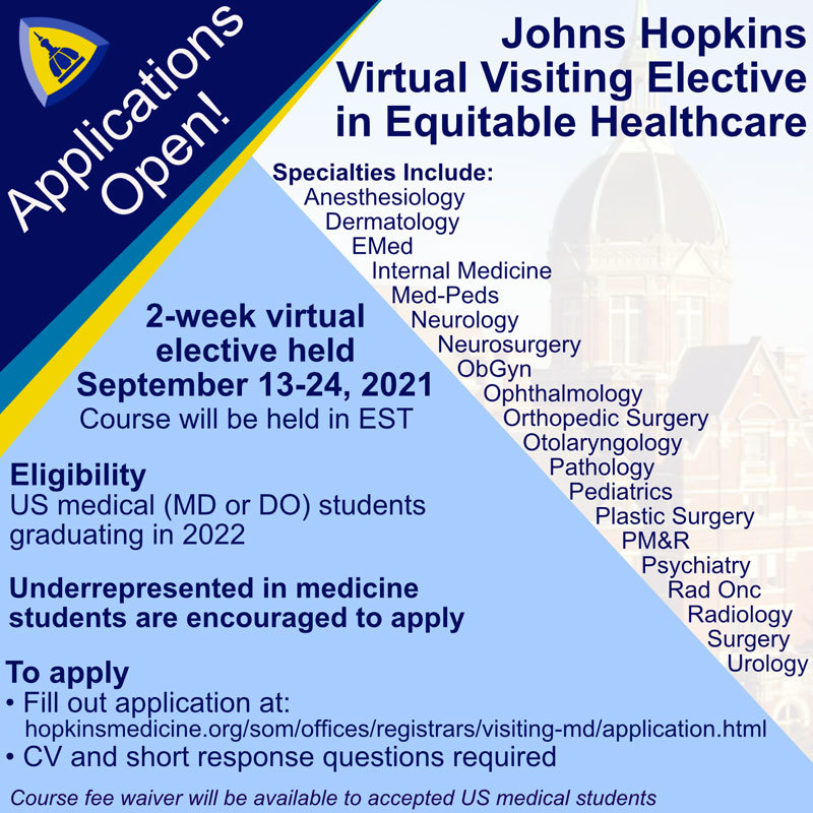
Congratulations to the 2021 ASCP 40 Under Forty Honorees!

Three members of our department were selected by the American Society of Clinical Pathology as a "40 Under Forty Honoree". The selected honorees are:
- Robert Kruse, M.D., Ph.D.
- Lisa Rooper, M.D., FASCP and
- Marissa White, M.D., FASCP
Allison Chambliss, Ph.D., DABCC, FAACC, a former clinical chemistry fellow, is also selected.
The ASCP 40 Under Forty program recognizes members (nationally and internationally) under the age of 40 for their achievements and leadership qualities that are making an impact on pathology and laboratory medicine.
Five members will be selected, so please support your Hopkins family when you vote for your favorite honorees!
Marc Halushka receives the W. Barry Wood Jr. Award

Dr. Halushka is the 2021 recipient of the W. Barry Wood Jr Award for Excellence in Teaching. This award is given annually by the Johns Hopkins medical students to the teachers they have found to be the most inspirational and/or effective in the preclinical years. This is the third time he has received this coveted award (2017, 2019, 2021).
Congratulations Marc!
"
Teaching and interacting with our outstanding medical students has always been one of the most satisfying aspects of my career. I am deeply moved and honored that they have chosen me among the many incredible educators we have at Johns Hopkins.
Marc Halushka, M.D., Ph.D.
National Medical Laboratory Professionals Week, April 18-24
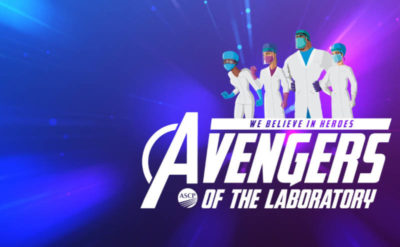
The Department of Pathology celebrates National Medical Laboratory Professionals Week, April 18-24, 2021. The Department thanks all of its employees for their dedicated service and commitment to patient care.
"
The impact that each and every one of you working in the labs has never been more apparent than it is today. Your selfless dedication to our patients, and the direct impact you have alleviating their suffering, shines brightly during the COVID-19 pandemic. Thank you and keep up the extraordinary work!"
Ralph Hruban, M.D.
Director of the Department of Pathology
In recognition of Medical Laboratory Professionals Week, the video below about the Pathology Core Laboratory lab scientists as they talk about their careers and experiences working in the lab.
In Memoriam - Gerald S. Spear, M.D.
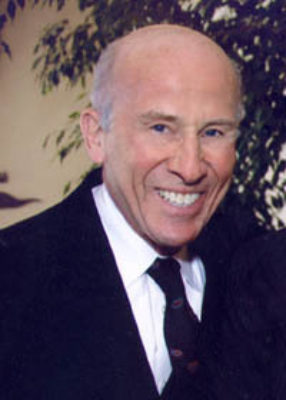
It is with great sadness that we learned that Dr. Gerald ("Jerry") S. Spear passed away on Sunday, April 11. Jerry was born in Providence, RI and graduated from Harvard College in 1948. He was a 1952 graduate of the Johns Hopkins School of Medicine and served on the Pathology House Staff from 1953-1956. From 1956 to 1958 he was the founding Chief of the Histopathology Center at the 6407th USAF hospital at Tachikawa, Japan. He returned to Hopkins as Chief Resident from 1958-1959, and served as a faculty member from 1959-1977. During his tenure, Jerry contributed significantly to the introduction of renal pathology at Johns Hopkins.
In 1977, Jerry left Hopkins to become Professor of Pathology at the University of California Irvine, retiring and becoming Emeritus in 2005. Upon his retirement, the Department of Pathology at Irvine, in collaboration with the Department of Pathology at Hopkins, established a fellowship in his name for an Irvine student who excels in Pathology to participate in a one-month elective in the Department of Pathology at Hopkins. The goal of this fellowship is to inspire respect for and, possibly, a career in pathology.
During Jerry's residency at Hopkins he lived in the Pathology Quarters, a room that was assigned to Pathology Residents on the third floor in the south wing of the Administration Building of the Hospital ("the Dome"). Jerry was the only Pathology Resident living in the Hospital under this arrangement at the time, and 1955-56 may have been the last year that residents lived in the administration building. Rooms transitioned to administrative staff offices, and, in fact, this transition may have occurred when Jerry lived there. For more information on Jerry's history at Hopkins, please click on this link.
In lieu of flowers, the family requests that donations may be made to:
Gerald S. Spear JHU-UCI Medical Student Fellowship
Department of Pathology
The Johns Hopkins Hospital, Carnegie 428
600 N. Wolfe Street
Baltimore, MD - 21287
or
The Senior Rabbi Fund, Temple Bat Yahm
1011 Camelback Street
Newport Beach, CA - 92660
Jerry is survived by his wife, Ilene, of nearly 57 years, 3 children and 8 grandchildren.
Retirement of Mary Lakin
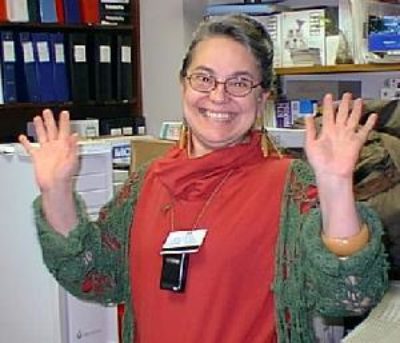
After 53 years of service, Mary Lakin will retire on Friday, April 2nd as administrator of PathLAN in the Department of Pathology. Mary's career began as administrative support to Dr. Robert "Heppy" Heptinstall. She served as Heppy's "right hand" and was invaluable to him when he was the Editor of Laboratory Investigation. Dr. John Boitnott remembers "back in ancient times" the anatomic pathology faculty needed a Pathology LAN for their university activities. Mary expressed an interest in learning more about computerization and was a key member for the Department as we entered the era of information technology, personal computers and networks. In those days "she did it all" including running the needed wiring!
The most memorable wiring project Dr. Boitnott remembers was running the wire between the Pathology Building, the faculty labs and offices in the then new Ross Building. The wire ran under Monument Street through a tunnel that connected the sub-basement of the Pathology Building to the Power Plant. The tunnel passed by the main computer center in the basement of the 1830 Building and there were a couple of conduit openings in the wall at that point. Facilities could not find any plans that showed where these conduits went, but with some probing one was found that went directly to a junction box in the ceiling of the computer center directly above the main Unix Server. It took some persuasion before being allowed to remove the bottom plate of the junction box (using a very tall and rickety wooden ladder) so that one could pass the wire on to the stairwell in the Ross Building and then up to the labs and offices. A line was needed to run to PDS in the Meyer basement. Since the original walls of the Pathology Building still blocked access to Meyer, the "unprotected" wire was run out of a fourth floor window in Pathology, down the outside wall, through the courtyard and into Meyer through another window. This connection proved to be more reliable than the connections facilities subsequently created through the ceilings since the ceilings were full of unidentified wires that facilities was prone to cut.
Through the years, Mary has mentored and developed a superb "PathLAN" team that to this day has provided exemplary IT support to the Pathology faculty and staff. Everyone knows that an email or call to Mary will get them back up and running soon! Her positive can-do attitude in every situation is palpable; from crashed computers to missing files, Mary responds to every call for help with an assuring smile. The Department of Pathology is grateful to Mary for her invaluable contributions to the Department. We wish Mary all the very best and thank her for her many years of service in Pathology and in supporting the mission of Johns Hopkins Medicine.
Congratulations Mary!
Dean Paul Rothman talks with Dr. Heba Mostafa about Covid-19 Variants
Since last year, Dr. Heba Mostafa has helped develop a test to diagnose Covid-19. She has been instrumental to Johns Hopkins Medicine's efforts to help stop the pandemic. Dr. Mostafa is the director of the virology lab and assistant professor of pathology. Watch the video of Dean Paul Rothman with Dr. Mostafa talking about the new variants of Covid-19.
Congratulations, Dr. Evan Bloch!
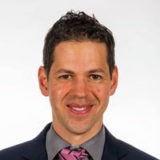
Evan has been awarded the American Society for Clinical Investigation's 2021 Young Physician-Scientist Award. "The ASCI Council Young Physician-Scientist Awards recognize physician-scientists who are early in their first faculty appointment and have made notable achievements in their research."
Congratulations Evan!
USCAP 2021
The 2021 meetings of the United States and Canadian Academy of Pathology was all virtual. This didn't stop our annual alumni and faculty reunion! Everyone gathered together by Zoom and after a few words of introduction, split into smaller groups based on the years of affiliation with Hopkins. Everyone gave updates, shared COVID-19 stories, and, most importantly, reminisced.
We look forward to a time when it is safe to meet again in person!
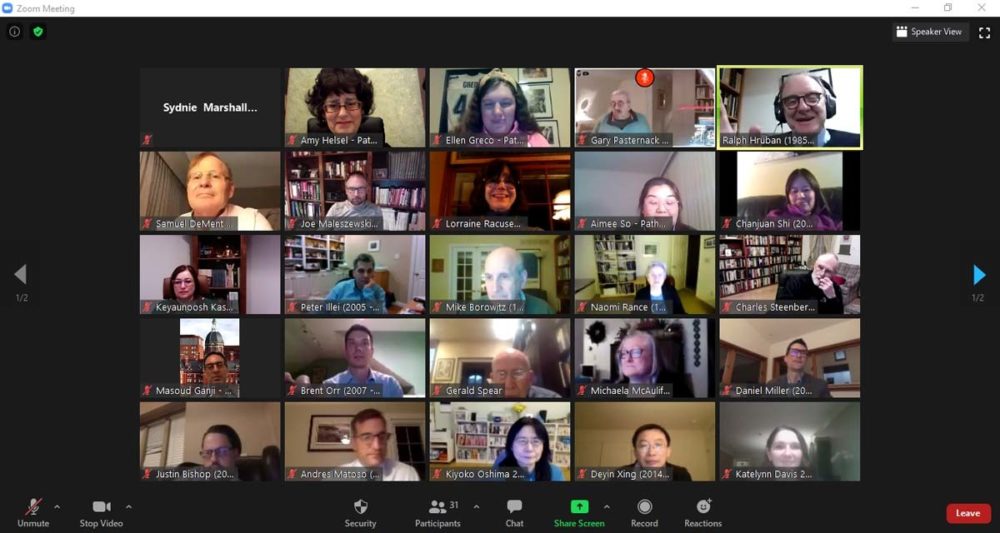
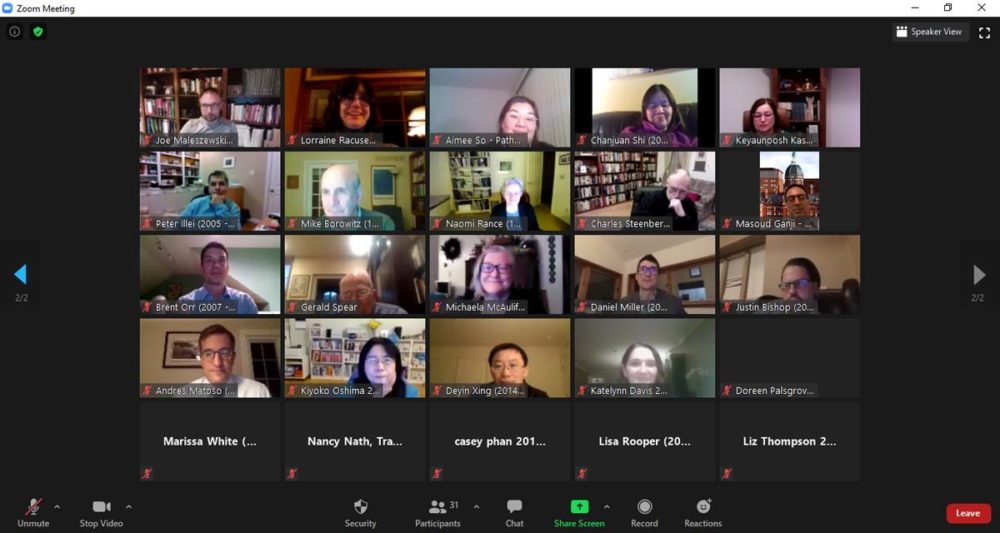
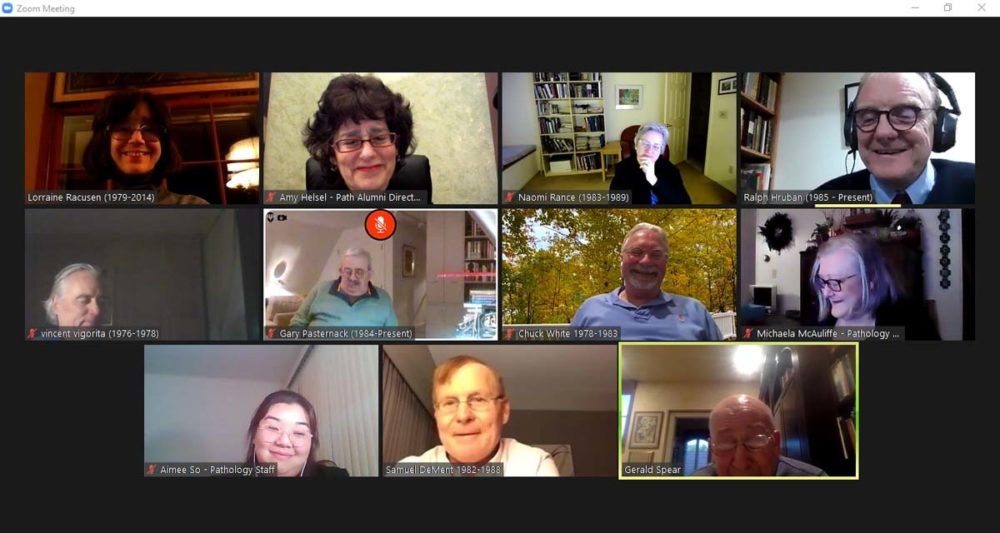
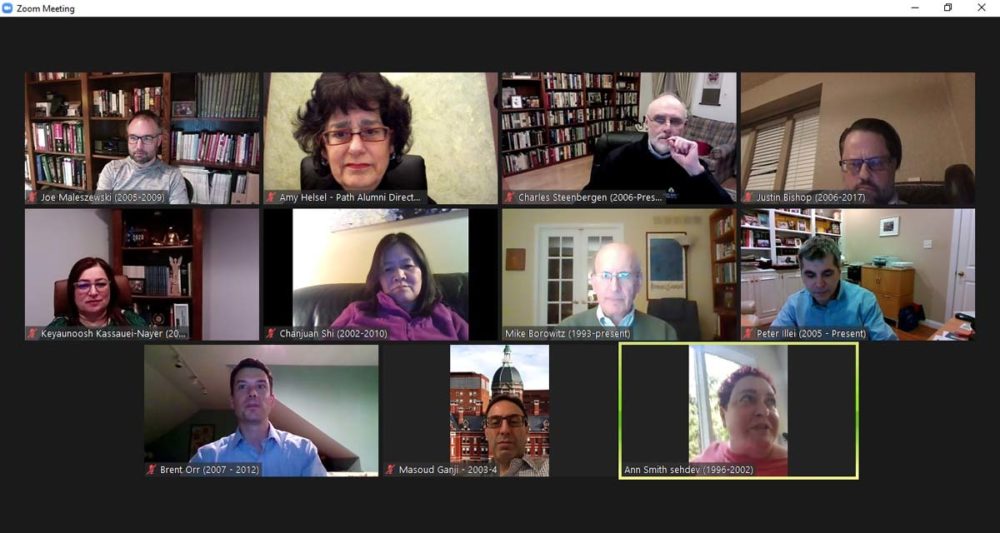
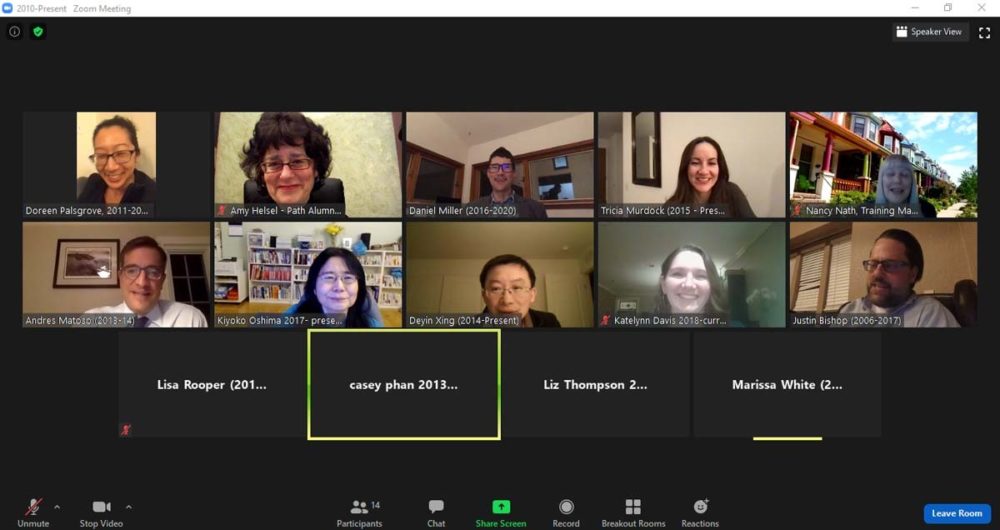
Congratulations, Dr. Lorraine Racusen!
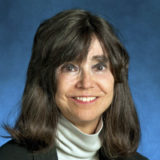
The Renal Pathology Society awarded Dr. Lorraine Racusen the 2021 Robert H. Heptinstall Lifetime Achievement Award. The award was announced on March 15th at the Renal Pathology Society's annual meeting. This award was named after Dr. Heptinstall in 2011 and recognizes lifetime accomplishments in the field of renal pathology.
Congratulations Lorraine!
Hopkins Pathology Residency Again Ranked #1 by Doximity
Doximity, the medical network web page, ranks residency training programs. Doximity's Residency Navigator is a tool built to help medical students make informed residency decisions and to increase transparency in the residency match process. Three components are evaluated in generating the ranking - (1) current resident and recent alumni satisfaction data, (2) reputation data, and (3) objective data.
We are pleased that our residency training program was again ranked #1 of all pathology residency programs.
Similarly, we are pleased that the Pathology Schools web site has also ranked us #1!
We are proud of our residents, our faculty and our staff. We believe that our graduates have had, and are having, impact.
#1 in NIH Funding
The Blue Ridge Institute released its 2020 rankings of NIH funding to US medical schools, and the Department of Pathology here at Johns Hopkins is once again recognized as the #1 funded pathology department! This makes our department #1 in NIH funding for 13 of the last 14 years.
In addition, Sharon Nachman, Susan Eshleman, Mary Glenn Fowler, and Shuying Sun were among the top 25 funded pathologists in the US. From fighting HIV in Africa, to cancer in the inner city, our faculty are dedicated to impactful science!
From the BLUE RIDGE INSTITUTE for MEDICAL RESEARCH as compiled by Robert Roskoski Jr. and Tristram G. Parslow:
| Rank | Name | Pathology |
|---|---|---|
| 1 | Johns Hopkins University | $53,165,271 |
| 2 | University of Pennsylvania | $45,706,481 |
| 3 | Columbia University Health Sciences | $36,980,923 |
| 4 | Stanford University | $34,521,386 |
| 5 | New York University School of Medicine | $32,908,135 |
| 6 | Emory University | $32,115,036 |
| 7 | University of Washington | $31,432,233 |
| 8 | Washington University St. Louis | $28,113,396 |
| 9 | University of Michigan at Ann Arbor | $26,472,281 |
| 10 | Case Western Reserve Univ/Cleveland Clinic Lerner | $22,662,684 |
Congratulations, Dr. Robert Kruse!
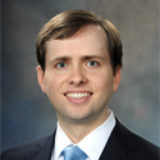
Robert Kruse, PGY-3 pathology resident, has been awarded the Physician Scientist Award as a part of the Johns Hopkins Young Investigator Day for his research on non-viral gene delivery methods in the liver for rare diseases. Robert has employed high fluid pressure to mediate naked DNA delivery through the biliary system. The technique has demonstrated around 30-50% of the hepatocytes can stain positive on immunohistochemistry after delivery of a model gene, human Factor IX, into pig liver. This exceeds reported data on adeno-associated viral vectors in human clinical trials, while also being over 100 times cheaper than these viral vectors. Together, these findings suggest the potential for translation of approach, given the similar size organs and anatomy between pigs and humans.
Dr. Kruse will present his work at the at the Young Investigators' Day Program Zoom ceremony on April 6th, 2021.
New Leadership Roles Announcement
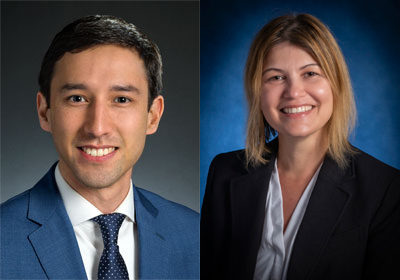
Please join me in congratulating Kevan Salimian, M.D., Ph.D., and Erika Rodriguez, M.D., Ph.D., for their new leadership roles.
Effective January 1, 2021, Kevan became the Director of Clinical Pathology and the Medical Director of the Laboratories at Bayview Medical Center. Kevan obtained his M.D. and Ph.D. degrees from the University of Pennsylvania, was a resident and then our chief resident here at Hopkins, and completed a fellowship here in GI/Liver pathology. He started on the faculty at Bayview on July 1, 2020.
Effective January 1, 2021, Erika became the Director of Anatomical Pathology at Bayview. Erika received her M.D. from the Federal University of Sergipe (UFS), in Brazil, and her Ph.D. from the University of Sao Paulo Medical School. She started her residency training in Brazil, and then moved to the Mayo Clinic in 2007. Erika completed her residency training here at Hopkins, and joined the faculty on the Broadway campus in 2014 after completing fellowships in Cytopathology and in Surgical Pathology.
We thank Kevan and Erika for their leadership.
Ralph H. Hruban, M.D.
Baxley Professor and Director of Pathology
2021 President's Frontier Award Finalist

Congratulations Dr. Laura Wood! Johns Hopkins University named her the 2021 President's Frontier Award finalist. This award, in recognition of her "Brilliant and important" pancreatic cancer research, comes with an $80,000 award towards her research.
In Memoriam - Nilabh Shastri, M.Sc., Ph.D.
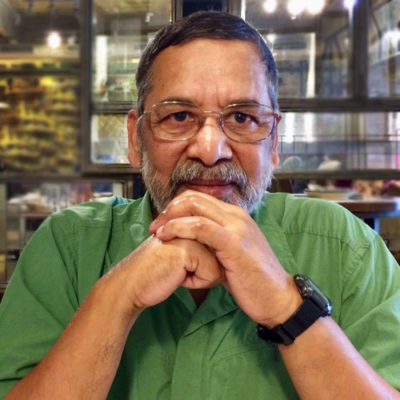
It was with great sadness that we learned that our dear friend and colleague Nilabh Shastri, Ph.D., passed away on Friday January 22nd. Nilabh joined our faculty in 2018 as a Professor of Pathology and of Biology, and a Bloomberg Distinguished Professor.
Nilabh was a pioneer in the area of immune surveillance, exploring the molecular mechanisms behind T-cell activation. His research has had a major impact on our understanding of the mechanisms underlying antigen processing and presentation as well as related fields. His publications have been cited over 14,000 times, and many of his discoveries have become textbook materials. Dr. Shastri's scientific accomplishments are noted for their multidisciplinary approaches to solve significant outstanding questions. His research not only used traditional methods of the discipline, but he also devised novel methods to approach previously unresolved problems. His contributions are relevant not only to fundamental immunology, but also bear upon cell biology, biochemistry as well as more clinical areas of autoimmunity and immunotherapy of cancer.
To list a few of his contributions to science:
Nilabh was the first to discover the role of cryptic translation in the antigen processing pathway. He found that translation of alternative mRNA reading frames even without the conventional AUG start codons contributed to the peptide repertoire presented by MHC class I molecules. Because the underlying molecular mechanisms and the role of cryptic translation in immunity were completely unknown, he followed that initial discovery to define the set of non-AUG codons and to show that cryptic translation was a previously unknown translational mechanism.
Nilabh also identified several T-cell stimulating antigen genes that had remained obscure for decades since their original discovery as genetic barriers to transplantation or targets in autoimmune diabetes. These discoveries were made possible by development of the lacZ reporter assay for T-cell activation. This exquisitely sensitive assay allowed Nilabh to screen cDNA libraries and identify the relevant antigen genes by their ability to stimulate T cell responses. These discoveries have garnered much interest as having solved the mystery of minor histocompatibility loci as well as providing targets for intervention in autoimmunity.
Nilabh and his colleagues debunked the dogma that the final antigenic peptides presented by MHC I molecules were produced only in the cytoplasm. These studies provided the basis for the search of the molecular mechanism for endoplasmic reticulum (ER) proteolysis and led to his discovery of ER aminopeptidase associated with antigen processing (ERAAP). The discovery of ERAAP provided the basis for investigating ERAAP's link to various autoimmune disorders such as ankylosing spondylitis and psoriasis. Nilabh further established the importance of ERAAP by determining that ERAAP-deficient mice were unable to elicit protective CD8+ T cell responses and were therefore susceptible to infections. Additionally, he discovered that an innate-like population of CD8+ T cells monitors ERAAP activity, and this monitoring is inhibited in viral infections and tumors as an immune escape mechanism.
Nilabh received a B.Sc. (1972) and a M.Sc. (1973) from Panjab University in Chandigarh India. He earned a Ph.D. from the All India Institute of Medicine Sciences in 1980. He moved to the US in 1981 as a fellow at UCLA. He joined the faculty at the University of California Berkeley in 1987. Nilabh came to Hopkins in 2018. In addition to being a brilliant scientist, Nilabh possessed special personal qualities. He was a gracious and genuine person, a gentle soul and extremely generous and caring. He lives on in the many people he trained and in the many people he touched.
Nilabh is survived by his wife Amita, their daughter Avantika, a son-in-law Lawrence, and seven year old twin grandsons, Aman and Kiran.
In lieu of flowers, the family asks that you consider supporting Nilabh's favorite charity, NPR (and its local stations KQED in the Bay Area and WYPR in Baltimore).
Congratulations, Ava Roberts!
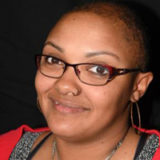
Ava Roberts, a clinical lab scientist in microbiology lab, has been selected as one of the eight recipients of the Johns Hopkins' Martin Luther King Jr. Award for community service. She volunteers with the Greater Baltimore Urban League since 2006, and enjoys helping middle and high school students prepare for college and careers. As part of the Pathology Diversity Committee, Ava also helps organize Black History Month activities and MLK Day of Service.
Thank you Ava for all your hard work and dedication to our department and to our community.
To read more about Ava Roberts' MLK Community Service Award, please click here.
Resident of the Month

The Johns Hopkins House Staff Council has selected Katelynn Davis, M.D. as the Resident of the Month for her contributions in Wellness Initiatives. Let us all congratulate Katelynn for a job well done and for representing our department!
Below are some of the anonymous feedback received to support Katelynn's award:
"...(she) worked selflessly to improve the quality of resident education"
"...impart(s) her wisdom and guidance as she sacrifices her time to ensure junior residents are taught"
"... Katelynn is also one of three Wellness chairs. By organizing in-house events such as Fika, weekly food deliveries or team-building exercises such as historic scavenger hunts, she ensures the general well-being of pathology residents is taken care of."
In Memoriam - Robert H. Heptinstall, M.D.
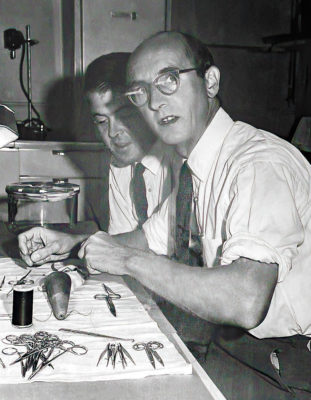
It is with great sadness that we learned that Robert H. Heptinstall ("Heppy"), the head of the Department of Pathology from 1969 to 1988 passed away peacefully on Tuesday January 5th, at the wonderful age of 100.
Heppy was one of a kind. He was born in Great Britain, and obtained his medical degree from Charing Cross Hospital Medical School in London. He then joined the British Army, where, as part of "Force 136," he parachuted into Thailand to care for freed prisoners of war. After the war, Heppy briefly studied under Sir Alexander Fleming, the discoverer of penicillin. Heppy came Johns Hopkins in 1954 supported by an Eli Lilly Travelling Fellowship. After a brief time at Washington University in St. Louis, Heppy returned to Hopkins, and was named director of the Department of Pathology and pathologist-in-chief of The Johns Hopkins Hospital in 1969. He led the Department for almost 20 years, stepping down in 1988.
Heppy had one of the longest continuingly funded RO1 grants, and made major contributions to our understanding of the link between hypertension and kidney disease and atherosclerosis. He was also a gifted teacher and writer. His magnum opus, The Pathology of the Kidney, now known as Heptinstall's Pathology of the Kidney, and in its 7th edition, is considered the leading textbook on renal pathology.
Heppy was president of American Society of Nephrology from 1972 to 1973; president of the Renal Pathology Society from 1980 to 1983; and vice present of the International Society of Nephrology from 1981 to 1984. He received a gold medal from the Danish Surgical Society; was given the David M. Hume Memorial Award from the National Kidney Foundation; the Jean Hamburger Award from the International Society of Nephrology; and, in 2011, the Renal Pathology Society renamed its lifetime achievement award the Robert H. Heptinstall Lifetime Achievement Award.
A memorial service is planned for after the pandemic ends. In lieu of flowers, the family requests that donations be sent to:
The Robert H. Heptinstall Fellowship Fund
The Johns Hopkins Hospital
Carnegie 415
600 North Wolfe Street
Baltimore, MD 21287
